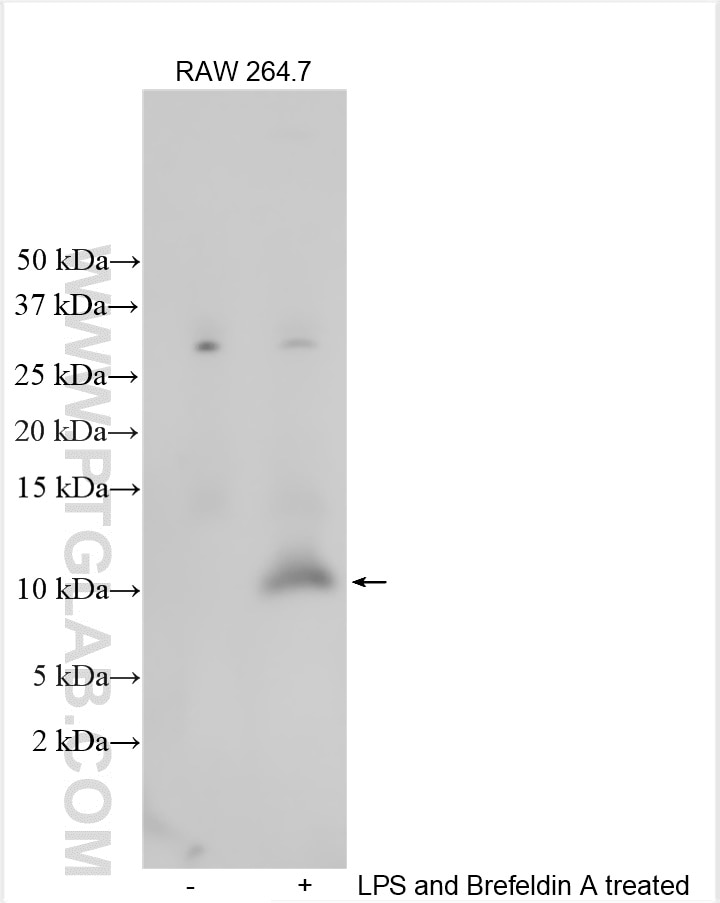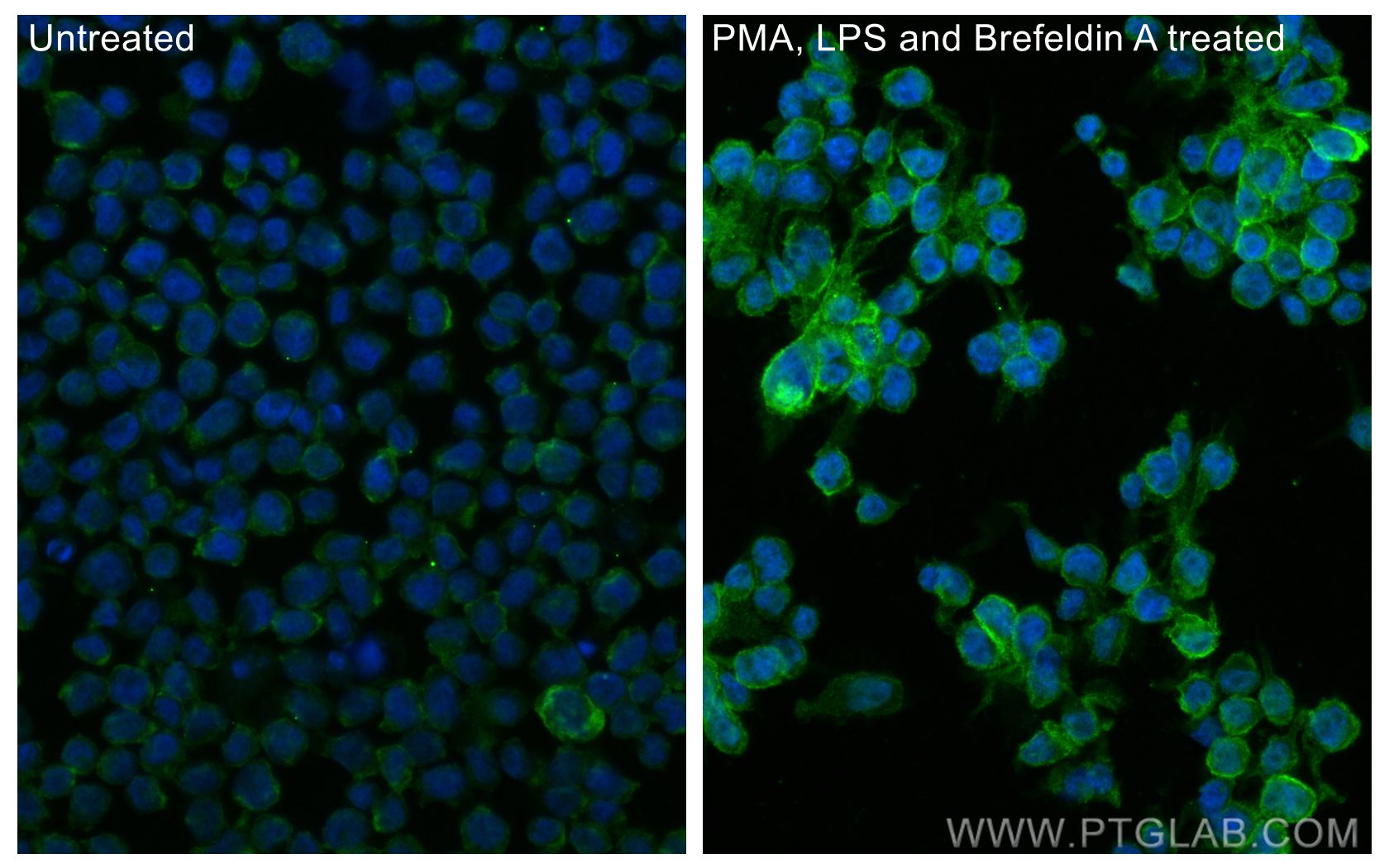Tested Applications
| Positive WB detected in | LPS and Brefeldin A treated RAW 264.7 cells |
| Positive IF/ICC detected in | PMA, LPS and Brefeldin A treated THP-1 cells |
Recommended dilution
| Application | Dilution |
|---|---|
| Western Blot (WB) | WB : 1:500-1:1000 |
| Immunofluorescence (IF)/ICC | IF/ICC : 1:50-1:500 |
| It is recommended that this reagent should be titrated in each testing system to obtain optimal results. | |
| Sample-dependent, Check data in validation data gallery. | |
Product Information
32190-1-AP targets CCL3/MIP-1 alpha in WB, IF/ICC, ELISA applications and shows reactivity with human, mouse samples.
| Tested Reactivity | human, mouse |
| Host / Isotype | Rabbit / IgG |
| Class | Polyclonal |
| Type | Antibody |
| Immunogen |
CatNo: Eg2170 Product name: Recombinant Mouse CCL3 protein (rFc Tag) Source: mammalian cells-derived, pHZ-KIsec-N-rFc Tag: N-rFc Domain: 24-92 aa of NM_011337 Sequence: APYGADTPTACCFSYSRKIPRQFIVDYFETSSLCSQPGVIFLTKRNRQICADSKETWVQEYITDLELNA Predict reactive species |
| Full Name | chemokine (C-C motif) ligand 3 |
| Calculated Molecular Weight | 10kd |
| Observed Molecular Weight | 11 kDa |
| GenBank Accession Number | NM_011337 |
| Gene Symbol | Ccl3 |
| Gene ID (NCBI) | 20302 |
| Conjugate | Unconjugated |
| Form | Liquid |
| Purification Method | Antigen affinity Purification |
| UNIPROT ID | P10855 |
| Storage Buffer | PBS with 0.02% sodium azide and 50% glycerol, pH 7.3. |
| Storage Conditions | Store at -20°C. Stable for one year after shipment. Aliquoting is unnecessary for -20oC storage. 20ul sizes contain 0.1% BSA. |
Background Information
Chemokine (C-C motif) ligand 3 (CCL3), also known as MIP-1α, belongs to the family of chemokines. CCL3 has been found in the central nervous system and its cognate receptors, CCR1 and CCR5, have been reported to be expressed by astrocytes, microglia and neurons. CCL3 and its receptors, CCR1 and CCR5, also contribute to the development of bone disease in multiple myeloma by supporting tumor growth and regulating osteoclast differentiation. CCL3 is also associated with the regulation of cell growth, angiogenesis, and metastasis of different tumors such as melanoma, renal cell carcinoma, and colorectal cancer. Moreover, CCL3 enhances cell migration and metastasis by up-regulating matrix metalloproteinase-2 (MMP)-2 expression in chondrosarcoma cells.
Protocols
| Product Specific Protocols | |
|---|---|
| IF protocol for CCL3/MIP-1 alpha antibody 32190-1-AP | Download protocol |
| WB protocol for CCL3/MIP-1 alpha antibody 32190-1-AP | Download protocol |
| Standard Protocols | |
|---|---|
| Click here to view our Standard Protocols |






